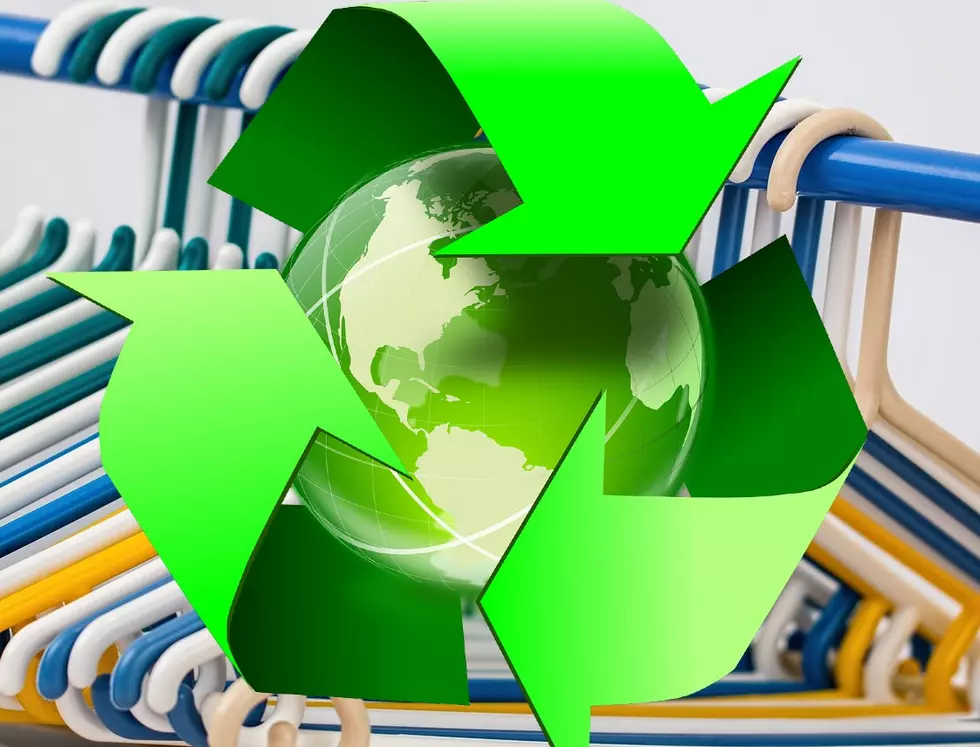
Panda Biotech Announces Lubbock County Hemp Processing Facility
Since the passage of a law legalizing hemp in Texas, many companies have been maneuvering to get into the business. One Dallas-based company is making big plans that will be sure to have an enormous impact to Lubbock County.
Panda Biotech announced that it will be developing its first industrial hemp processing facility, called the "Panda High Plains Hemp Gin". The new facility will be located in Lubbock County.
The press release from Panda Biotech reads as follows:
DALLAS & LUBBOCK, TEXAS — Dec. 10, 2019 — Dallas-based Panda Biotech today announced it is developing its first industrial hemp processing facility to produce high-quality, textile-grade fiber and premium cellulose. The “Panda High Plains Hemp Gin,” to be located in Lubbock County, Texas, is expected to be the largest hemp decortication center in the United States and one of the largest in the world.
Panda Biotech plans on deploying the most technologically advanced, highest capacity and first-of-its-kind industrial hemp decorticating equipment ever used to separate the fiber and cellulose from the stalk. The Panda Biotech Hemp GinsTM will be based on smaller versions of proven decortication technology that have been used throughout Asia and Europe for decades.
To ensure the highest quality fiber, the company will only process hemp stalks that are harvested prior to the maturation of the seed and flower, which are the parts of the plant used in CBD products.
Panda Biotech has also secured the rights to purchase a 255,000 square foot processing facility in Shallowater, Texas in the heart of cotton country. More than 130,000 tons of Texas-grown industrial hemp is expected to be processed annually into textile fiber and cellulose.
In the lead up to today’s announcement, Panda Biotech has engaged key stakeholders in the Texas High Plains region including the local farming community, academic institutions and elected officials. Panda Biotech is also establishing business relationships with large potential off-takers for the fiber and cellulose to be produced at its Texas facility. In addition, the company
is assembling a “first in class” advisory board composed of some of the top industrial hemp, textile and cellulose experts in the nation as well as agronomists experienced in the seeding, cultivation and harvesting of industrial hemp.
“After more than a year of due diligence — which has included an analysis of the hemp fiber and cellulose industries in the People’s Republic of China, various European countries and Canada — we have concluded that the processing of hemp stalk for industrial uses will be the next multi-billion-dollar business in the United States,” said Scott Evans, executive vice president of Panda Biotech. “Hemp fiber and cellulose will help manufacturers meet the needs of today’s eco-conscious consumers who increasingly require environmentally friendly products and services. As a result, hemp will be a game changer for both agriculture and industry for generations to come.”
Formation and growth of the industrial hemp industry
The U.S. hemp industry was made possible due to the passage of the federal Hemp Farming Act of 2018. Panda Biotech was subsequently formed after the provisions of the Act were incorporated in the 2018 U.S. Farm Bill that was signed into law by President Trump on Dec. 20, 2018. Both chambers of the Texas state legislature unanimously passed House Bill 1325, that was signed into law on June 10, 2019, by Texas Governor Greg Abbott. The law authorizes the production and manufacture of industrial hemp crops in the State of Texas pending final approval of Texas’ hemp regulations by the USDA which is expected in the coming weeks. The law ensures Texas farmers are able to participate in a rapidly growing industry with a new viable crop option that should also be a boon to rural economies.
The global industrial hemp market is projected to grow from $4.6 billion in 2019 to $32 billion by 2022.
Benefits of industrial hemp fiber and cellulose
Industrial hemp used for manufacturing applications is highly valued for its natural durability, rapid growth and environmental sustainability. The processed fiber and cellulose from industrial hemp can be used in the production of a multitude of products including textiles, a wide array of building materials, paper products, automobile composites, nanomaterials, bio-plastics and finishing products such as caulking, sealants, varnishes and paints. In addition, research indicates that hemp-based supercapacitors offer a less expensive alternative to materials currently used in
rechargeable batteries for applications such as smartphones and electric cars. As a result, industrial hemp is poised to transform numerous multi-billion-dollar industries.
About Panda Biotech
Based in Dallas, Texas, Panda Biotech, LLC is a first-mover in the emerging U.S. industrial hemp fiber and cellulose industry. The company is currently developing industrial hemp processing facilities and large-scale Hemp GinsTM. Panda Biotech’s first processing facility is planned for the High Plains region of Texas.
Panda Biotech’s executive leadership has extensive experience developing, financing, constructing and operating large-scale industrial facilities including natural gas, solar, hydroelectric and biomass energy projects. They have developed 22 projects since 1982 representing approximately $14 billion in invested capital. Additional information on Panda Biotech can be found at www.pandabiotech.com.
More From KFMX FM
![[WATCH] Here’s Why You Should NEVER Top Off Your Gas Tank](http://townsquare.media/site/157/files/2024/04/attachment-sippakorn-yamkasikorn-0aJOTBQfEFE-unsplash.jpg?w=980&q=75)




![[WATCH] Suspiciously Shaped Chick-fil-A Nugget Freaks Out Customer](http://townsquare.media/site/157/files/2024/04/attachment-436996567_3725603461016661_5901275409598907135_n.jpg?w=980&q=75)



